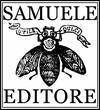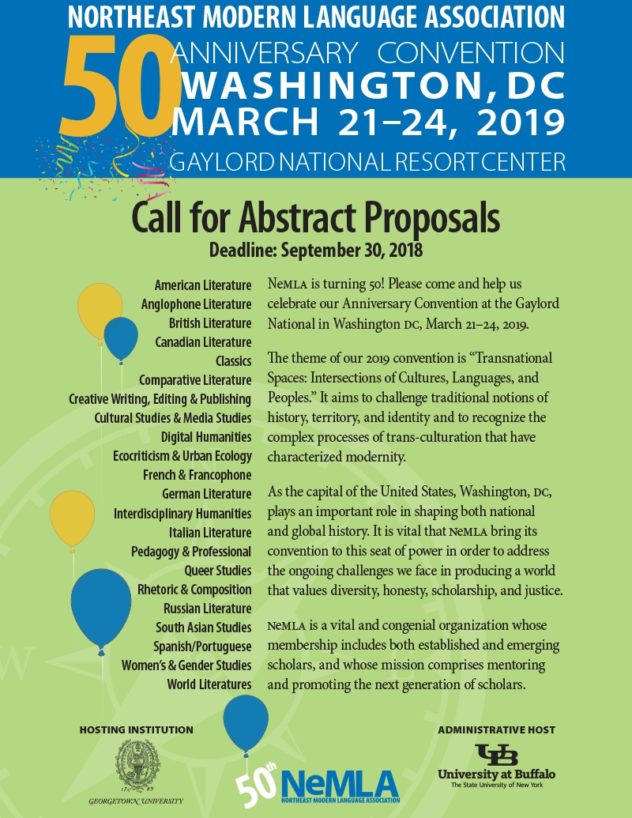
WRITING IN A DIFFERENT LANGUAGE
Alessandro Canzian, Simona Wright
What does it mean to write poetry? This is a fundamental question that we ask without expecting a final answer, but with the hope of starting a conversation that embraces several perspectives, primarily the sociological and cultural one. Today, writing poetry means also to have a relationsip with the readership/audience, to participate in events, readings, festivals, where poets are physically present and the emotional participation immediate. We believe that today’s different rapport with the readership has dramatically altered the way poets approach their art.
For this reason we have selected a group of authors that share a common element, writing some of their work in English. This is a somewhat courageous choice, as Italy is one of the countries where English is less spoken.
By exploring and confronting a different linguistic system, we believe these authors have opened a laboratory where their own language is examined, unpacked, and challenged. English has become for them a creative space where crossing borders may produce original cross-pollinations and hopefully new forms of poetry.
Somewhat differently from “migrant writing” for its historical and cultural context, writing poetry in a different language has a similar objective, to reach a level of authenticity which is the direct consequence of a linguistic and cultural clash. This operation may isolate the poetic word, but it may also make it a pure artistic expression.
Finally, writing in a different language can also mean to find a new, contaminated voice by translating one’s poetic inspiration in an unfamiliar, transnational space.
These are the poets:
Ilaria Boffa
Moira Egan
Monica Guerra
Allison Grimaldi Donahue
Baret Magarian
Sandro Pecchiari
Brenda Porster
Rachel Slade
The publication of NeMLA Italian Studies (Volume XL, 2019) will be simultaneous with that of Modern Language Studies, NeMLA’s larger publication. This double publication celebrates the 50th anniversary of the organization, whose conference will be held in Washington DC, March 21-24, 2019. NeMLA Italian Studies’ editor, Simona Wright, is NeMLA’s president and will preside over the conference. The conference’s theme is “Transnational Spaces: Intersections of Cultures, Languages, and Peoples,” and our keynote speaker will be Homi Bhabha.
Here is an excerpt from the President’s letter:
“Transnational Spaces: Intersections of Cultures, Languages, and Peoples.” As president of the organization, in charge of choosing the theoretical framework for the convention, I wanted to point our attention to the importance of the articulated space we inhabit, occupy, and interpellate through our cultures, languages, and bodies. Space and time are the dimensions in which we work, developing our notions of history, body and gender politics, identity, and subjectivity. Space produces memory, determining our sense of belonging, our forms of life and agency. In the space we inhabit together, we are continually involved in, challenged, and driven by the complex processes of trans-culturation that shape our reality. Within and across space we continually produce the cultural and artistic contaminations that complicate modernity. At NeMLA we embrace the transformations produced by the historical context and celebrate our interconnectedness by proposing different perspectives, new theoretical approaches and research methods. As walls keep rising in the geography of our world, NeMLA’s chosen theme responds to the challenges we face, culturally and socially, as intellectuals. With “Transnational Spaces” we hope to connect disparate forms of understanding and to foster new opportunities of social and intellectual engagement”.
Writing in a Different Language
ILARIA BOFFA
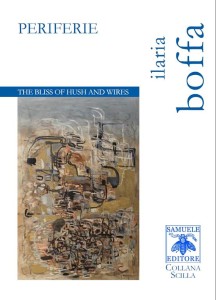
The Distance
I.
There’s a distance that cannot be covered.
The journey appears circular, a repetition
of the night and its perimeter.
When a dog runs, it does not look behind,
there’s no measure of its own being.
Retrievers know how to please their master.
But linden trees soothe each frail creature. Step by step
over the meadow, the look crosses corn fields.
A fallow land will bring silence.
II.
Far, too far, continents
burn in the distance, attracted by gravity
and the beloved soil.
That line of melancholy rends the soul
like a sharp thread.
Where’s patience that is supposed to be embraced?
Waiting is our mutual gift.
III.
Today I see just trees, expanses of trees.
I am a tree. My roots extend till the centre of the earth
and a shiver climbs back to the top of the canopy.
And afterward I become sap, dense sap.
Slow molasses over a carpet of salt.
It’s the way to sink into the abyss,
the body learns fragmenting and recomposing bones.
On the pond’s bank, it lies down, contiguous, sensing
each curve, all the eddies, the muddy algae.
Where have you been?
Your figure draws a rainbow and I smell
your musky hair bringing
the forest into the world.
Now I know who we are.
Days of aloofness have receded at last.
MOIRA EGAN
Seven
Consider the dumb beast Lust,
how she lumbers in, uninvited
unintentional,
busts up the crystal stemware,
leaves your candles burning all
night, rips your best negligee
in the most neglectful way
as if you hadn’t spent a
hundred bucks on it. As if
she has a place in your bedroom,
your heart, some argument
you lost like a poker game,
all the while never cracking
a smile. Or consider this:
that she is fine and wily
as the leopardess Dante
beholds in the first Canto,
her coat dappled dark and light
like sin and salvation in
the same bated breath. What if
she is sleek and smart as a
red-winged hawk, eye unerring
for the prey, the goal, the gold
that glints and glitters its sign,
Noli me tangere, don’t
touch. But you will, of course, it’s
your nature to want what’s not yours.
The fetters fall, sad and pure.
Circe Offers Comfort
The cyclicality of history
has traced this circle, strange geometry,
in which Odysseus forsakes his bed
and wanders back to Circe’s isle instead.
I am the Circe, then, whose father left
the little girl behind, mother bereft.
I saw my parents’ bed uprooted long
before that other woman came along.
My family called her “whore” or sometimes “bitch.”
Meanwhile I learned my trade: a little witch
who grew into this woman whom you love,
whose incantations you’re enamored of.
(That preposition never suited me.
I never wanted of; I liked between.)
Now I’m the whore or bitch of whom they’ll speak.
We know the truth; I’ll turn my other cheek
and try to love you, best I can. It’s chance
that brought us here, and all the potions, chants
a witch can summon up can only calm
a little while. Smoothed into you like balm,
I’ll feed you food and watch you sleep. The dreams
will fade, although I know for now it seems
her name will haunt you like a childhood verse.
To walk away’s both blessing and a curse.
Vertiginous
I walked into the sunset by mistake
(forgetting work, and love, even this heat).
Amazing, how the scarlet on the lake
spreads out like virgin blood upon a sheet
hung out the next day, wind-whipped, trophy-proud.
And later, as the haze rolls in, the grey
of lake embraces sky, a ghosty shroud.
That heron’s blue, the color of your eyes,
his awkward, stalky flapping into flight
are metaphors as fitting as the night
we fumbled, one the flesh, into a bed
unknown, unmade, unmaking, flesh and blood
the fabric all we are. This feels, you said,
like vertigo, or falling into love.
MONICA GUERRA

cruel and reddish air
always craving for the rain
while stones lay slow
stirring the water’s faults
a precarious silence floats
this is the fraud
the green desert the expected
always so close though
it never happens
the harsh voice of vastness
stings in the moist under the skin
and a peaceful concern
floods the silence’s fault
how easy it is alone
the other eye of the moon
the desert
and how difficult it is
a cursory peace
among squirrels’ fingers
and concrete, giving up
is a wild green
fast setting
a mumbled melancholy
but you unroll your lashes
ruffle the virgin nests
among your hair on your breasts
in a deserted den
truth trembles free
ALLISON GRIMALDI DONAHUE
i sat drunk at Dante’s tomb 2 weeks before
you died asking him what to do
how to be better
even from my self-imposed exile
the lady behind me laughed as i asked silently
for an answer
found a polaroid of the dog
on the couch the summer
before you died
those are your legs
the dog lies on
no human face only human legs
immobile dualistic
the mind already gone to some other place
sometimes i run my index finger over my thumbnail
to feel the anemic bumps—
though nothing compared
to your nails
i am able to convince
myself for a second that i am holding
your hand
BARET MAGARIAN
Can I stay with you
Can I stay with you just a little while
To take the pressure off
To put my feet up
To have a smoke, a drink with you
To loosen that corrugated noose round the world’s neck
To elongate the glimmers of light sequestered into
Far flung corners of the shattered globe?
Could I stay with you just a little bit longer
Could you teach me to dance, tremble
In the eclipse between life and death?
Can I stop with you a while,
Before I don my armour again with etiolated limbs
Before I go out again into the war zone the interplantary banshees
The flickering whips twitching the world’s horizon of pain
Can I stay with you just for a little while longer?
I’ve spoken with seas and tides, been privy to the secrets of storms
Exchanged pleasantries with time, wrestled with the wind
Wondered among stars and planets, and seen the old blue earth from afar
I’ve plunged into electric tides and felt the current of the universe
Plugged into the live circuitry of my form, I’ve been a Grecian urn,
A supine statue, a whirlwind, been spewed out and ejected
As though from the shaft of an active volcano
But I’m back, I lived to tell my tale, I’ve come to
Drink a toast with you, to marinate your limbs with pleasure,
And to bathe you, dress you, baptise you,
I’m still alive, I’m still here, I can be servant to your master,
The oriental spice that has no name, that travellers have searched for in vain,
I can be your flame, torch, sunray, enchantment, the lament
Of the desert wind, the river’s slow motion once more after the eternal winter’s cessation
I can be all this, and so much more, if you’d only let me reach you
But you sit, slow and furrowed, with a dark brow, you have reached
A staleness, a stillness, you are like some great bear in its cave
If you came to me number 1
If you came to me, in the night,
When all are asleep, except for contorted lovers,
If you came to me by moonlight, having scattered all the shadows
That the desert moonlight brings, and waited a while,
Waited for the moment, or courage,
Maybe even taking a drink of water at the fountain,
Lapping at it like a thirsty dog whose loyalty is always to his master,
If you came to me, and gave me courage, said, “Your heart
Is pounding so fast, I will ease it,
Your sight is dim
I will brighten it,
Your mind’s confusions are legion,
I’ll scatter them.”
If you came to me, like this, in the gentle night,
If you came to me, if you did.
SANDRO PECCHIARI

KIDHOOD
1.
We sucked from udders,
hiding friendship in the cowsheds
wearing it like drops of white mulberries
on our lips, not showing off.
The river at the wind was our fence,
the fence a border
to foreign kids and fights –
at times we crossed at fords to barter
for long reeds or fish,
lending our own world
borrowing words or weapons.
Ditches dug around our houses,
doubled summer
huge unending clouds –
our wilderness drowned in buckets
of sun-warmed water
– left out all afternoon –
to wash away our mud,
to wash us back
into a world of order.
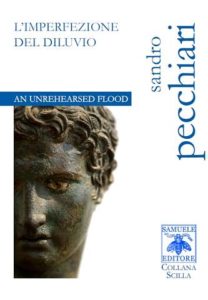
2.
our questions hushed
into days of mallow buds and berries:
the world was food for us.
our time spurred a new language of nettles,
against our skins
scattered scraps of words
open-hand sore pricking
cicadas spoke for us.
3.
Heal me – you shouted
in the battlecore
hay like bombs
girls nibbling at pumpkin seeds
cheering
Handwoven baskets for our helmets
brooms our rifles,
we boys were blundering hushed fightings
aiming and shooting with no sound
– the ban was strict, we had been told –
miming motionless running for our lives,
battlecries and death rattles.
The cows – unaltered – stared
and munched.
I thumbed a line along your imaginary wound,
wondering if it would work,
you jumped back into the battle, healed –
an instant miracle stable boy.
Heal me –
I could not heal myself from you…
Where are you now
fifty years on?
I could recognize you
only in my memories,
not on these streets
paved
these cornfields a parkade.
BRENDA PORSTER
Antigone in Apulia – A Gypsy Mother’s Tale
Cast out we were
into the dark sailing away
not towards, but together,
she exactly filled
the empty cradle of my arm
a damp-warm weight her need only I
could meet, the dark vague depths
of eyes, the desperate searching,
the shell-clenched fists rosy,
uncurling prawns grasping
my breast, tentative
lips and then that clamping pull
of life from me to her fulfilled
our mutual need, each to each
bound, in perfection,
the circle closed.
When did I see she was not
there, her small weight gone
limp, suspended, all warmth
drained, the searching ended?
She no longer needed
me, while I was left, longing
and my arm circling
empty. Chill terror clamped
my breast and suddenly I knew:
that they would come and
cast her down to depths
infinite she would drop
down never to be found,
her tiny body unfurling
waving anemone limbs
forever searching forever
exposed.
No! This could not be! I,
her mother, would provide
for her a warm covering, decent sand
and place, a collocation
of the mind, for both our needs, together
a final time, before I said
once more: good-night,
good-night, my heart’s own dear,
and left her there
Note: For burying her baby daughter on the beach of Apulia, where she had landed after escaping from Kosovo, this ROM mother was arrested by the Italian police and charged with illicit concealment of a corpse
Danaë
is that any way to treat
a so-called darling daughter?
shut up in a chamber
for my own good, he said,
but really meant: no sex for you,
my girl, till I decide;
and so I paced the rounds, muttering curses,
clawing bronze walls and crazy
in want until: he came and
looking up I saw
light-filled particles of gold dancing
in air reflections of sun filling
every pore, my body bathed
in warmth opening
to him and he penetrating
my inmost need
now
in my chamber the shower is lifted
the empty air cleansed
pure as space and I
alone again, but knowing
inside me, deposited, lies
a hoard of gold,
an ecstasy of memory.
Eve asks a question
into the secret creases of your mind
my insinuating tongue curls
as yours does in my body
this lust I have to taste
in utter intimacy
your inmost self
is it the real
forbidden fruit?
RACHEL SLADE

Pillar
what letter begins your country’s name
how shall we begin to make something whole again.
how shall we name the body.
its rivers and roads.
my companion folds herself into sleep.
I ask.
how shall we name the fields
where we were abandoned
like nightgowns.
and I ask.
how shall we name the beginning of the stone
used to martyr the bird
or the blue wing of solitude.
I ask.
how to beat the names black.
how to die like a column of numbers.
I ask. though she sleeps.
how to name the honey in the mouth.
the body of my body, sex of my sex.
the patron saint of empty houses.
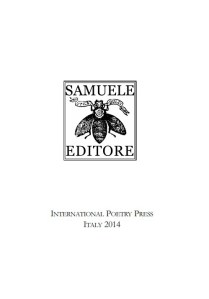
Iris
1.
mine is the language of standing still
a snail dreaming on a pillow of eggs
small numbers, a column of fixed resin
this is the territory of shaken stars
mine is the language of matrimony, the firm agreement
of four feet in river water, my name a stone thrown at the sky
my hesitation is the outcry of wooden horses
my death is a horse laying down in the water
its ribs the archway of earth’s desire
instinct and calculation made plastic and real.
an endless land of white stone. immense and strategic.
I am an island of snow and things fallen asleep in the snow.
I am a land without sorrow.
2.
The measures of the hand create the whole body
the grasses and membranes soaking in the sun or
bits of fur abandoned in ditch water
these animal stalkings part trees in the distance
and if love waits for you there
the two black leaves on the thin tree will wave
the girl was a thin memory, waving.
dry roads led me to her and her to me
she was the envelope of a dust cloud
rising on the roadside at noon
we were boys and girls together
on the man’s road. among the man’s herds.
I was an iris and a hymn
I was a white crane in the burnt field
I was the empty gutted houses leaning over the water
and the land was a strong mouth, a strong hand.
